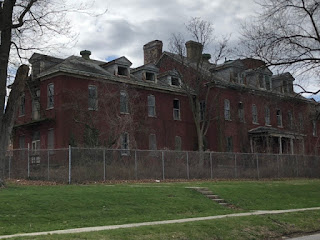Are bicycle shops "essential" businesses?
I imagine that you, or anyone else reading this blog, would answer "Of course!" And I would agree with you.
Apparently, New York City officials as well as their peers in San Francisco and some other cities have listened to us: They have included bike shops as "vital" because, as we argued, some of us normally use our bikes for transportation, while others are using them because of their fears about taking trains and buses, as well as cutbacks in service.
Even some non-cyclists agree that bike shops should be allowed to stay open during the COVID-19 ("coronavius") outbreak. After all, gas stations and auto repair shops are still operating because some people are driving--and to keep ambulances and other emergency vehicles running.
Notions about what is "essential" aren't always so clear-cut. A candy factory is still operating because anything having to do with food is considered "essential." On the other hand, hairdressing and nail salons aren't. I stupidly put off a styling, so I'm facing weeks, possibly months, of "bad hair days." Of course, that's a good reason to keep on cycling-Still, I understand why hairdressers', barbers' and nail finishers' shops are closed: I don't know of anyone with arms long enough to cut or color the hair or nails of someone sitting six feet (two meters) away. I also understand why other businesses aren't operating: there isn't enough business or their workers can't, or won't come in.
That last category includes a longtime favorite of mine, Bicycle Habitat. Even after a surge of repairs, tuneups and new bike sales, it's closing for a week. Charlie, the owner, says it's a matter of protecting himself (He's in the high-risk age group), family and customers as well as doing right by the community in general. I also imagine that it's difficult to enforce "social distancing" in the confines of a bike shop. In his Chelsea shop, it probably means allowing no more than two customers in at a time.
Ironically, bicycling--at least solo--is one of the best ways to get outdoor exercise while still keeping a safe distance from others in an urban environment.








































